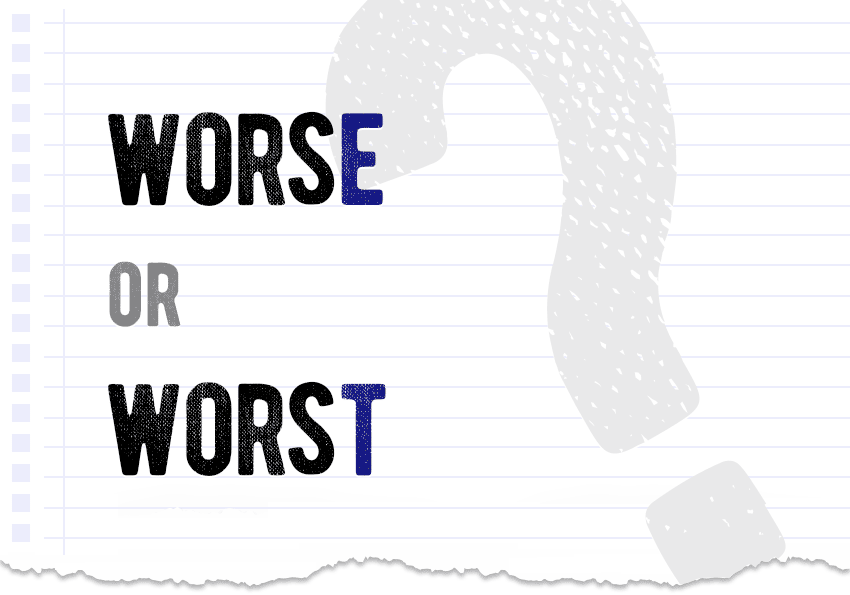Worse or worst – which is correct?
Worse or worst? Which form is correct? Although the comparative and superlative forms of adjectives are learned at the very beginning of a language course, many people keep making mistakes and use these two words in the wrong context. As you may have already suspected both forms – worse and worst – are correct but as I said before everything is a matter of context.

Worse or worst – what’s the meaning?
First of all, let’s look at the meaning of these two words. Both forms – worse and worst – come from the word bad (meaning: the opposite of good). As you can see they are not even slightly similar when it comes to their sound and look. That means these are irregular forms of the adjective “bad”. Fortunately, irregular adjectives are exceptions and they are the minority among all the adjectives.
Worse or worst – what’s the difference?
Now, when you know that worse and worst are irregular forms of the adjective bad, let’s compare the usage of these two forms.
The first one – worse is the comparative form. It means that it is usually used when we compare two things, as in the phrase:
Sugar is worse for your health than salt.
The superlative form is used when we want to underline that one thing distinguishes among all the rest, so we compare one thing to a whole group as in the phrase:
The worst thing that ever happened to me was my dog’s death (meaning: Nothing was as bad as that.).
Worse or worst? Now it is all clear! Examples in sentences
As you can see there is no incorrect form as long as you can put them in the right context. To learn it by heart – look at the examples below:
Now that isn’t too bad an idea because @#$% leaves it to the imagination and most people have a worse imagination than I have.
Paul Zindel, The Pigman
The worst part of the job was jostling with other kids who were desperate like me.
Martin Ganda, I Will Always Write Back
Other irregular adjectives
Good/well – better – the best
Far – further – the furthest
Little – less – least
Many/much – more -most


